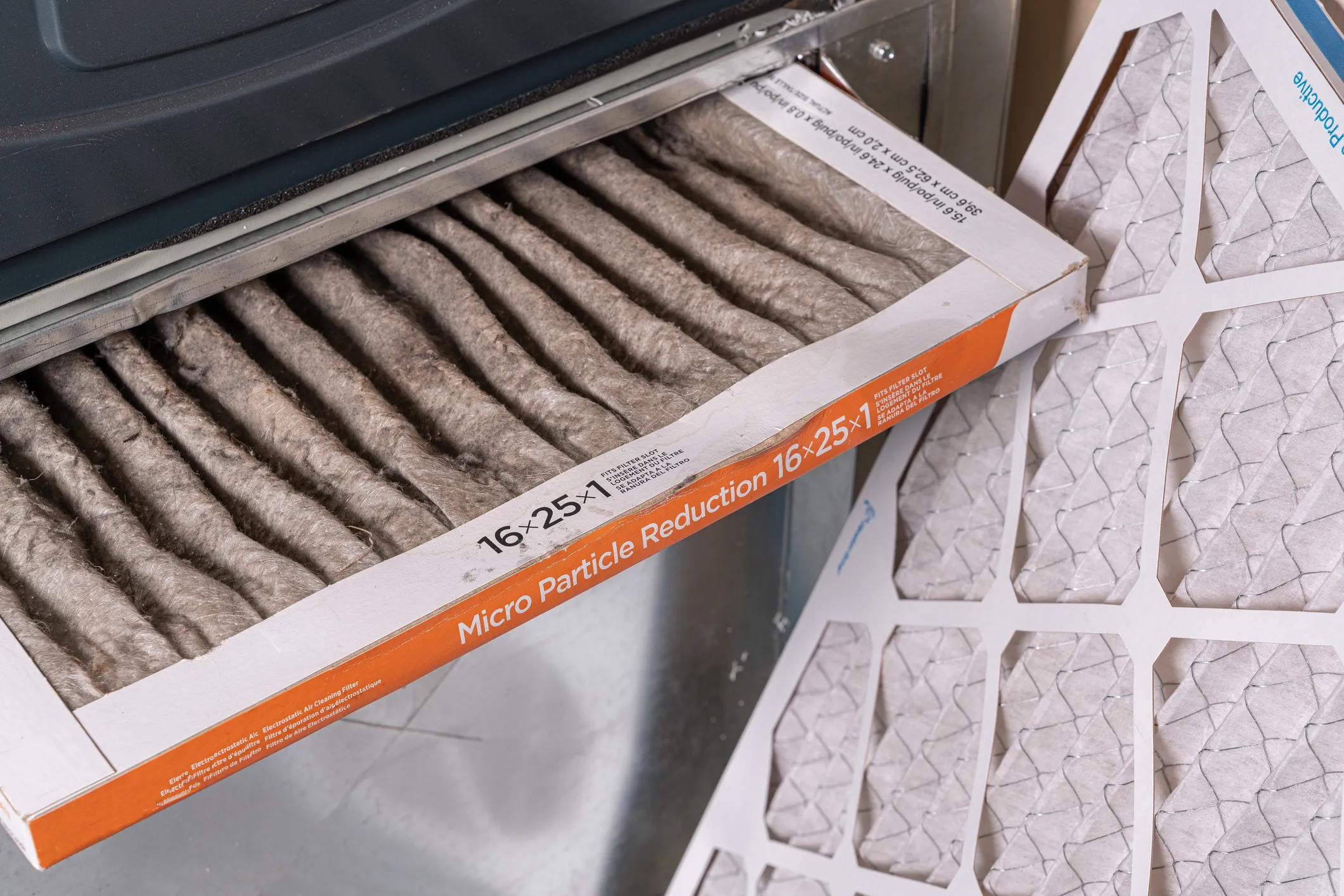Picking the Ideal Air Filter for Your HVAC System
Maintaining clean, fresh indoor air is a top priority for many homeowners and using the correct HVAC air filter plays a big part in providing it. Take a look at this guide to help you select the ideal filter kind, dimensions and MERV rating for your home’s indoor air quality needs.
How Often Should You Change Your Air Filter?
The first thing to to determine is how often you should replace the filter. The standard industry advice for standard residential filters is to replace them every 90 days for the average home without pets. If you have a dog or cat, shorten this to every other month. For homes with multiple pets or family members with allergies, your schedule should be as often as every 30 days.
Picking the Correct Air Filter Size
Not all heating and cooling systems are identical, so different companies make air filters to fit multiple kinds of filter slots. Buying the correct size ensures a snug fit without allowing air to bypass the filter. Here are three easy ways for you to identify the perfect filter size:
- Look at the existing filter for a label detailing the dimensions.
- Measure the filter slot. Confirm the height, width and depth to ensure a tight seal without forcing the filter into the opening.
- Consult the HVAC manual, which should mention the filter size and type advised for your system.
Kinds of HVAC Air Filters
Different filter materials and designs are available, and each is designed for different needs. Here are some popular types:
- Fiberglass filters are the simplest and affordable option. Made from layered fiberglass strands, they trap larger particles that could accumulate on the equipment. However, they don’t filter small particles that can be an issue for people with respiratory problems, so don’t count on them to deliver top-of-the-line indoor air quality.
- Pleated filters fabricated with light polyester or cotton folds offer a bigger surface area to trap smaller particles.
- Electrostatic filters employ self-charging fibers to collect airborne particles. They come in both single-use and reuseable forms.
- HEPA filters offer exceptional filtration. However, because they severely limit airflow, they are usually reserved for medical facilities, clean rooms and other commercial applications. If you want to use a HEPA filter in your residential HVAC system, consult a heating and cooling technician to determine compatibility.
Air Filter MERV Ratings
Minimum efficiency reporting value, or MERV, is the system used to evaluate air filter performance. Ratings range from 1 to 20, with higher numbers demonstrating a filter’s ability to trap very fine particles.
- MERV 1-4 describe the common air filters, helping trap large particles such as pet dander, pollen, lint and carpet fibers. They offer limited filtration but are cost-effective for simple applications without pets or allergies.
- MERV 5-8 are better suited for homes and commercial buildings where pet dander, mold spores, pollen and dusting aids need more constant handling. They offer a good balance between cost and filtration capability, making them a popular choice among homeowners.
- MERV 9-12 apply to filters that can help with legionella, humidifier dust, auto emissions and more. They provide superior air quality to help alleviate allergies or mild asthma symptoms.
- MERV 13-16 are viewed as top-of-the-line filters for residential use. They’re found in hospitals and other healthcare settings where pure air is necessary. These designs trap bacteria, tobacco smoke and even certain virus particles.
- MERV 17-20 ratings are mostly found in HEPA filters, capable of trapping roughly 99.97% of particles down to 0.3 microns in size, including lead dust, humidifier dust, asbestos fibers and other incredibly small particles.
Other Tips You Can Use to Make Your Selection
When figuring out which type is the ideal home air filter, don’t forget about these factors:
- Household needs: Pet owners, people with allergies or asthma, and homes in areas with high dust or pollution may be better from using a filter with a greater MERV rating.
- System compatibility: Before you go out and buy a filter with a rating of MERV 12, check if your HVAC system can accommodate the higher MERV rating without hampering airflow.
- Filter thickness: Filters that are 4 to 5 inches thick usually work longer and offer stronger filtration than standard 1-inch filters. Just make sure your system is compatible.
- Cost vs. benefits: High-end filters have a higher initial price tag but need to be replaced less often and provide higher air quality. Make a rough estimate of the potential long-term savings and health benefits when deciding.
- HVAC professional’s advice: The most reliable method to feel confident in your decision is to consult an HVAC technician offering trusted advice based on your home’s system and air quality needs.
Breathe Easier with Enercare Accent
If you’re looking for a better air filter, let Enercare Accent assist you in making the ideal selection. Our air filtration system installation service will protect your HVAC equipment and alleviate asthma and allergy symptoms. We take pride in making a meaningful difference in your life and comfort through our tailored, professional services. For assistance with picking the right air filter or other HVAC needs, please contact Enercare Accent today.


